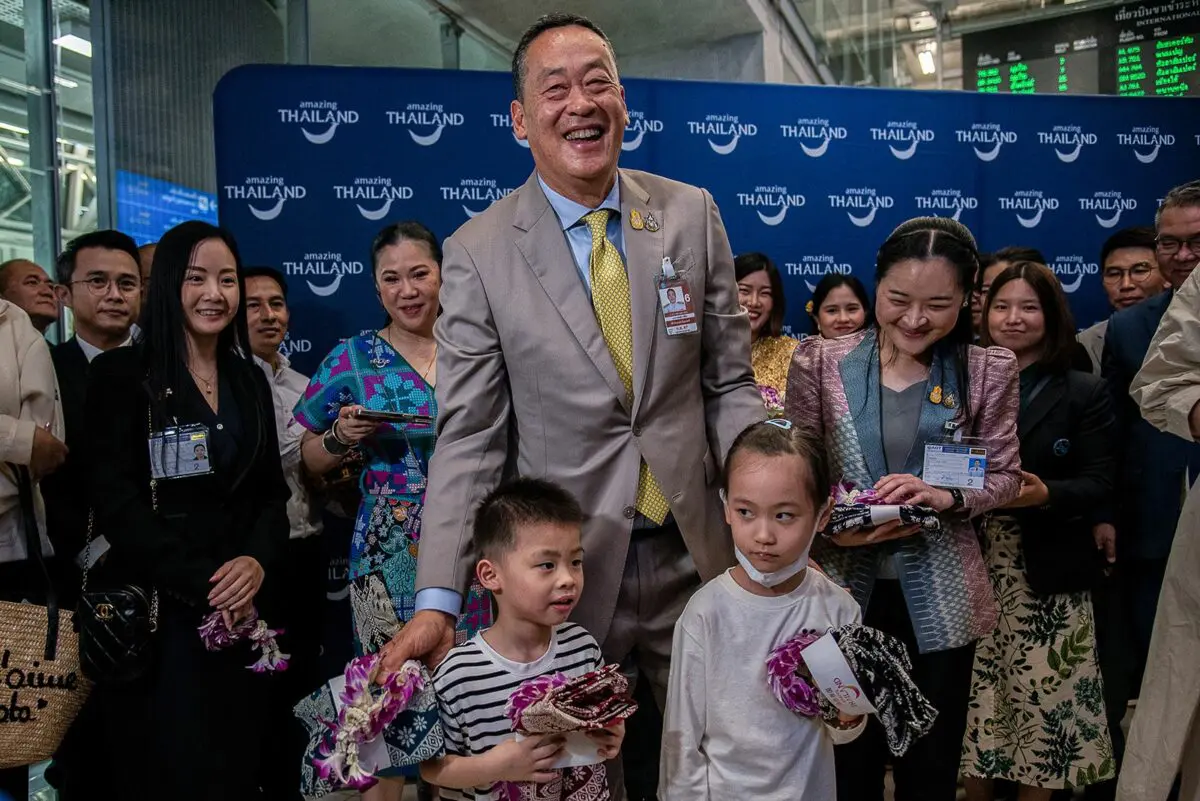China and Thailand have long enjoyed a vibrant tourism relationship, particularly during the Lunar New Year, when millions of Chinese tourists flock to Thailand’s picturesque beaches and bustling cities. However, a recent high-profile kidnapping incident involving actor Wang Xing has cast a shadow over this festive period, leading to significant cancellations and safety concerns amongst would-be travelers. This article delves into the intricate implications of Wang Xing’s abduction on Chinese tourist trends and Thailand’s tourism industry.
As news of the kidnapping spread, many potential travelers expressed their apprehensions about safety, prompting a noteworthy shift in travel plans. With China’s Lunar New Year holiday approaching, the timing could not have been more critical. Traditionally viewed as a prime travel opportunity, this season is now marked by uncertainty and skepticism among tourists, posing challenges for Thailand’s historically robust tourism sector.
The Context of the Kidnapping Incident
Wang Xing’s unfortunate situation unfolded when he was reportedly lured to Thailand under the guise of participating in a film production. Unfortunately, this enticing offer masked ulterior motives, as he was abducted by human traffickers who aimed to exploit his abilities within a cyber-fraud operation across the border in Myanmar. This shocking occurrence raises alarms not only for tourists contemplating travel plans but also for industry stakeholders concerned about the safety standards in popular tourist destinations.
News outlets covered the incident extensively, with platforms like The New York Times shedding light on the rising safety concerns among Chinese tourists. As the details of Wang Xing’s kidnapping emerged, many individuals looking forward to the Lunar New Year festivities began reassessing their travel intentions.

Impact on Flight Bookings and Reservations
The immediate aftermath of the kidnapping saw a notable increase in flight cancellations and refund requests among travelers planning to head to Thailand. Airlines reported a spike in customer inquiries about cancellations, reflective of a significantly changed climate for travel booking. Traditional booking patterns were disrupted as many opted to reconsider Thailand as a travel destination amidst increasing safety concerns.
Travel agencies and tour operators have reported a pronounced decline in booking numbers for the Lunar New Year period. For instance, a tour operator in Guangdong province disclosed a sharp drop in bookings, reflecting a broader trend as news of the kidnapping cascaded across social media platforms, heightening public awareness and anxiety.
Reactions from Chinese Tourists and Influencers
Social media has become a pivotal platform for the expressions of fears and anxieties surrounding travel to Thailand. Many Chinese tourists took to platforms such as Weibo, articulating their apprehensions regarding personal security while abroad. The haunting narrative of Wang Xing’s ordeal resonated deeply with users, prompting discussions about safety and travel advisories.
This digital discourse has not only influenced real-time assessments of Thailand’s tourism health but also shaped the traveling mindset and behavior of potential tourists. Influencers who previously promoted travel to Thailand began adopting a more cautious tone in their messaging, highlighting the importance of considering safety before making travel plans.

Effects on Thailand’s Tourism Sector
Thailand’s reputation as a prime destination for Chinese travelers has suffered a significant blow since the kidnapping incident. With Chinese tourists accounting for a large share of the country’s tourist revenue, the potential for cancellations presents dire implications for local businesses and the economy at large. In a landscape where tourism is vital for economic stability, apprehensions about personal safety can lead to considerable financial losses for both the tourism sector and the wider economy.
Industry experts predict that the ongoing anxiety surrounding travel could result in a staggering decline of 10 to 20 percent in the number of Chinese tourists visiting Thailand during the Lunar New Year. This drop could equate to losses amounting to billions of THB, a concerning forecast given the historical significance of the season for local businesses.
Boosting Safety Measures and Reassurances
In light of the recent incident, Thailand’s government is taking proactive measures to reassure potential visitors of their safety during their stay. Prime Minister Paetongtarn Shinawatra has publicly emphasized the nation’s commitment to traveler safety, aiming to restore trust among tourists considering their travel options for the Lunar New Year. Such initiatives are crucial not just for addressing immediate concerns but also for preserving Thailand’s long-term reputation as a safe travel destination.
Enhanced security protocols, especially at tourist hotspots and along the Thai-Myanmar border, are being discussed among government officials. These measures aim to provide a buffer of safety while ensuring travelers can enjoy their vacations without trepidation. This is particularly crucial in a period marked by fear of scams and potential criminality against tourists.

Community and Stakeholder Responses
The reaction among community stakeholders and local businesses has also been noteworthy. Many hotel and restaurant owners are concerned about potential cancellations and decreasing bookings in light of recent events. The tourism industry shows resilience, with stakeholders collaborating to ensure they present Thailand as a safe, welcoming destination.
Local businesses are emphasizing engagement with customers, reiterating their commitment to ensuring safety and security for all visitors. Promotional campaigns seeking to attract tourists back to Thailand are underway, targeting to alleviate fears surrounding travel to the country.
The kidnapping incident involving actor Wang Xing represents more than just a single case; it highlights the significant interplay between safety perceptions and tourism dynamics. As Thailand grapples with declining tourist numbers, the need to reinforce security measures and public reassurances becomes increasingly crucial. Ultimately, restoring confidence among Chinese tourists will be vital to preserving Thailand’s cherished status as a premier travel destination during this pivotal period.
Hi, I’m Sarah, a 30-year-old journalist with a passion for storytelling and uncovering the truth. I strive to bring important issues to light and connect with my audience through compelling narratives.



